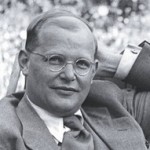 by Humbert of Romans
by Humbert of Romans
CHAPTER FOUR
XVI. Concerning the Wicked Reasons Why Some do not Wish to Preach
Among the frivolous reasons why some men refuse to preach, we mention first the excessive diffidence of those who believe themselves incapable of preaching although they are fully competent to hold this office. To such as these the Book of Proverbs says:
“Deliver them that are led to death: and those that are drawn to death forbear not to deliver. If thou say: I have not strength enough, He that seeth into the heart, he understandeth, and nothing deceiveth the keeper of thy soul: and he shall render to a man according to his works” (Prov. 24:11-12).
According to the gloss, this text ought to be applied to preachers.
In the same category should be placed the false humility of those who deem themselves unworthy of so exalted an office. They make a great mistake when they refuse to obey in this matter. St. Gregory says:
“One who is inclined to refuse should not absolutely resist, but should take care lest pride, under the guise of humility, cause him to refuse the great glory to which his is destined.”
With these latter we should place those who are held back by an excessive love of the quiet of the contemplative life. St. Gregory against these says:
“There are some who, endowed with excellent qualities, reserve all their ardor for contemplation, and who refuse to work, through preaching, for the salvation of their neighbor. They love the quiet of the hidden life, and shut themselves up in their meditations; but if judged strictly, they will be found responsible for having omitted much that would have been profitable if done among men.”
There are some who shrink from the active life of preaching because they are frightened by the sins which they see other preachers fall into. It is of such that Ecclesiasticus says:
“For better is the iniquity of a man, than a woman doing a good turn” (Ecclus. 42:14).
St. Bernard explains this by attributing “the iniquity of man” to certain faults committed by the preacher; whilst the “good turn” of the woman indicates the purity of the soul that remains in the quiet of the contemplative life. The first, rightly, being proclaimed as better, that is, more useful, than the second. Often, in fact, the active life is better, although in it one may rub elbows with evil, than the permanent indolence of a retirement for the sake of keeping a perfect purity.
Others shrink from the laborious preparation that such a ministry demands. They devote a great deal of time to gathering the material for their sermons and then wait for a perfection which they never will attain before they make use of them. And when their friends are asleep and fire consumes their house, or enemies invade it, they do not awaken their sleeping friends.
“Run about, make haste, stir up they friend” (Prov. 6:3),
cries the Book of Proverbs to them, and, according to the gloss, it is addressed to the negligent preacher.
Others are deterred from preaching because of a pusillanimity which seizes them when they think of this work. Let them give ear to the Lord Who will strengthen them through the words of Isaiah which the gloss applies to preachers:
“Say to the faint-hearted, take courage, and fear not” (Isaiah 35:4).
There are others too lazy to prepare any sermon which demands of them application and hard work. St. Paul was intent upon fighting this sloth when he wrote to his disciple:
“But do thou be watchful in all things, bear with tribulation patiently, word as a preacher of the gospel” (II Tim. 4:5).
As if to say to him:
“Do not shirk the work of writing sermons because of the vigils and fatigue which they will impose upon you, but bear up under them and acquit yourself worthily.”

Others fear the want which they will have to endure. This especially is the lot of preachers who are poor since they have neither revenues nor assured fees. Would to heaven that they would remember the privation that Jesus Christ had to suffer in His ministry!
“And when he had looked round upon all things,” St. Mark narrates, “then, as it was already late, he went out to Bethany” (Mark 11:11).
He looked around, the gloss tells us, to see if anyone would offer Him hospitality. And so great was His poverty that not one was found in so large a city to honor Him with the hospitality of his house. What preacher of our day has ever been in such need that he could not find in any city the necessities for his sustenance?
Others are afraid of the bodily fatigue which traveling would impose upon them; forgetting that St. Paul, the perfect model of the apostle, added to the fatigue of traveling constant manual labor.
“For you remember, brethren, our labor and toil. We worked night and day so as not to be a burden on any of you while we preached to you the gospel of God” (I Thess. 2:9).
Others, again, are rebuffed by the unpleasant dispositions of certain pastors of the Church, who hinder rather than foster preaching. They are like the Scribes and Pharisees of the Jews, and the priests of the pagans, who sought to prevent Christ from preaching and violently persecuted those who proclaimed the Gospel, as we see in the Acts of the Apostles and the stories of the Saints. If the first preachers had retreated in the face of this opposition, the faith of Christ would not be preached today. If such cruel persecutions did not prevent these men of God from fulfilling their duty, then present-day preachers can find no justifiable excuse for their silence or desertion in such an obstacle as an unsympathetic pastor.
Yet, others are shocked at the impiety of the people. Willingly do they preach to pious and eager listeners, yet they abandon those who have greater need of their assistance. Do we not know that the Lord sent His prophets not only to the faithful, but also to an obdurate people?
“And they to whom I sent thee are a children of a hard face and an obstinate heart,”
He said to the prophet Ezekiel (Ezek. 2:4).
Others, having preached once without receiving praise, are discouraged. One could not be perfected in any art with such an attitude. Who has ever learned to speak Latin, without having for a long time used incorrect grammar? Who has ever learned to write well without having first written badly? And this is true of all things. It is only by overcoming repeated mistakes that one arrives at perfection in any art. This is why the Philosopher says:
“It is by putting the hand to the work that the worker becomes capable.”
And so it is in practicing to preach. Although one may be pretty bad at the beginning, yet he will arrive at success eventually.
Others remain silent because of the great number of preachers, saying to themselves:
“What need is there for me to preach, when there are so many others doing so? Thus they deprive themselves of the reward promised to preachers in the Psalms, which “increase in a fruitful old age” (Ps. 91:15).
Whoever wants to share in a catch of fish accompanies the fishermen, in the same way whoever wants to share in the merits of those who preach, ought to preach as much as he can. When Simon Peter s aid,
“I am going fishing,”
his companions replied:
“We also are going with thee” (John 21:3).
Others, finally, do not wish to go preaching in uncongenial company; for as it is necessary that there be a least two on this ministry, they prefer to deprive themselves of the fruits of preaching rather than work with certain others. But although it is written:
“Thou shalt not plough with an ox and an ass together” (Deut. 22:10),
the poor farmer would rather harness together the ox and ass than leave his land uncultivated. Now the oxen represent the preachers, who, according to the gloss, are named in the Book of Job:
“the widow’s oxen” (Job 24:3),
that is to say the Church’s. Would not the herdsman who must give an account of the products of the land to the householder have the right to complain of an ox which would not be teamed with a horse or an ass although there was not other ox available?
The preacher must give up, then, these frivolous pretexts and apply himself zealously to preaching, as St. Paul recommended to his disciple, Timothy, when he said to him:
“Preach the word, be urgent in season and out of season” (II Tim. 4:2).
![]()
This is an excerpt from the Preachers Institute publication:

